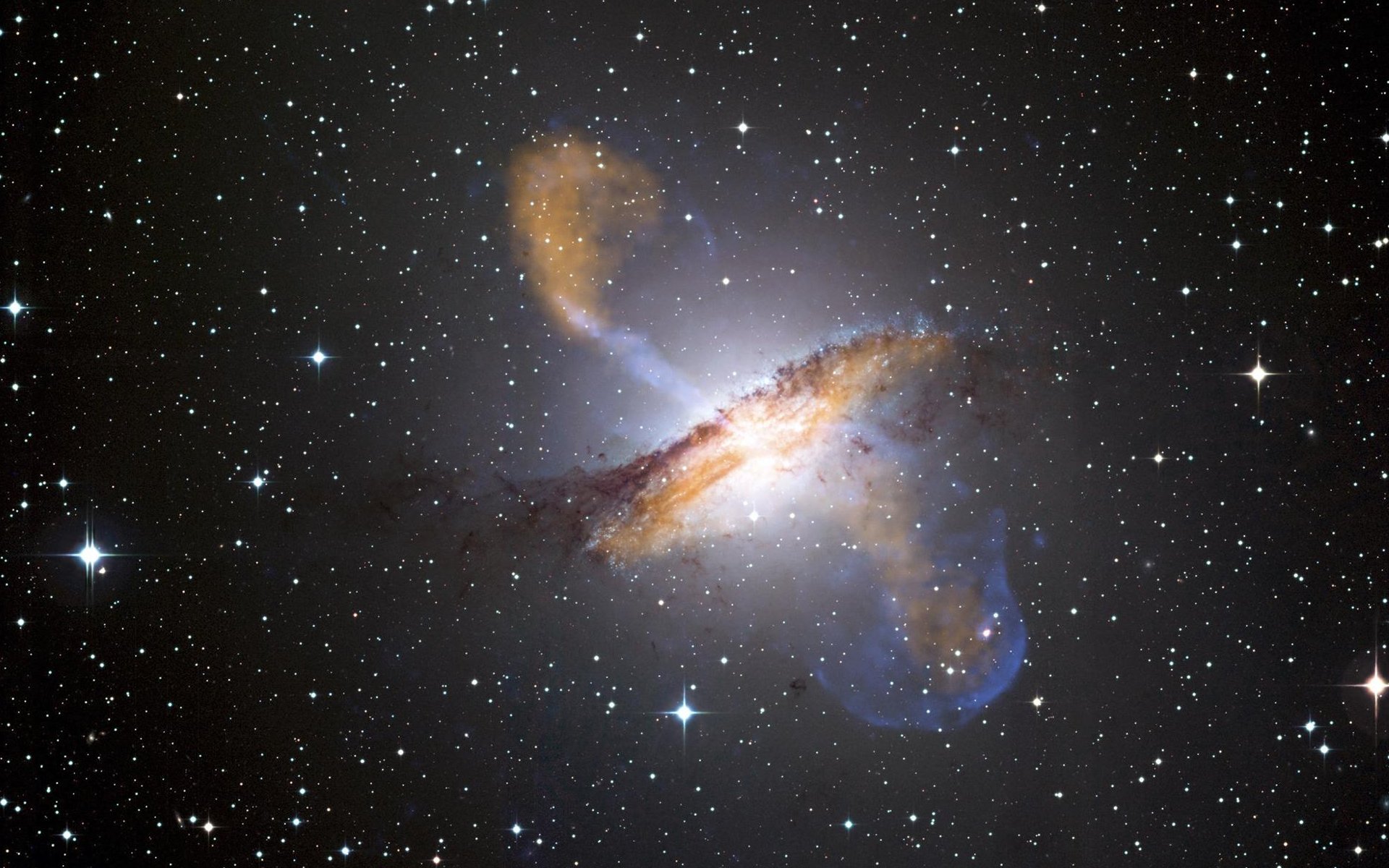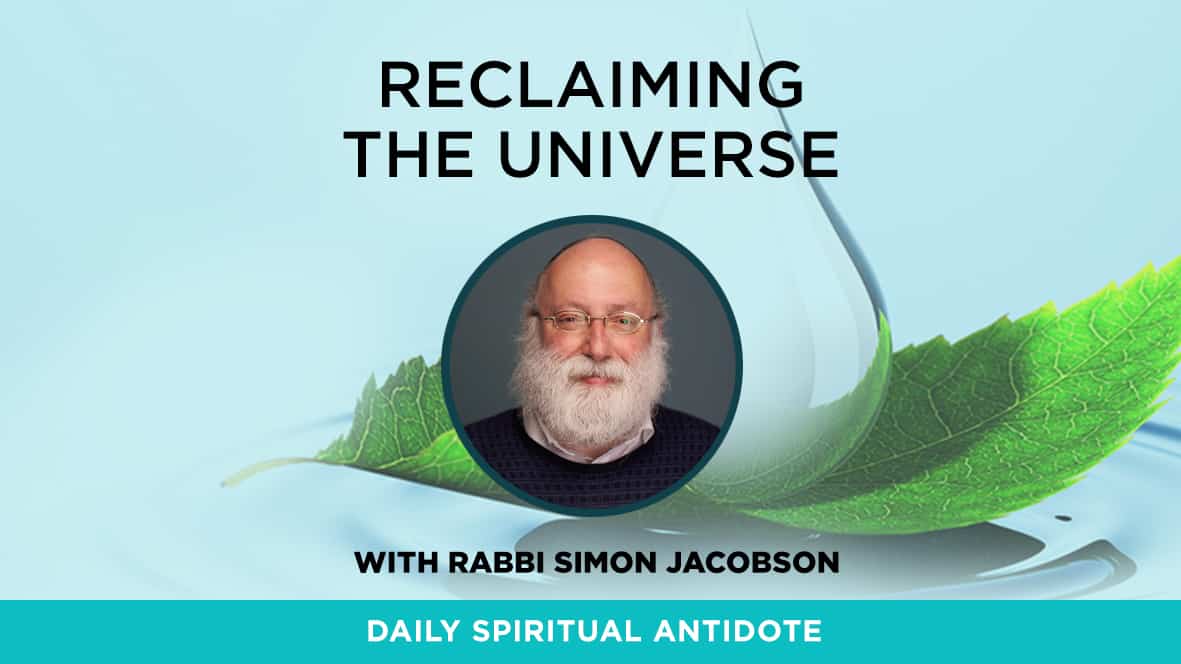What is pleasure? We use the word in relation to so many and diverse things. What do a steak, a musical composition and an idea have in common? Yet “pleasure” is our word of choice in describing our experience of a meal, a concert, or an intellectual revelation. For as different as the sensations derived from these things may be, they share a common essence: the capacity to impart a sense of fulfillment to the human soul.
Indeed, all pleasures flow from the same font. The teachings of kabbalah describe the created reality in terms of a “chain of evolution” (seder hishtalshelut), whose uppermost link is G-d’s pleasure in His creation, which spawns the divine desire to create. This divine desire then passes through many stages and metamorphoses, evolving into “worlds” and realities of increased tactility. Every object, force or phenomenon is simply another form of the generic divine desire—the differences between them lie only in the manner and extent of their evolution. The higher a reality is in the “chain,” the greater its awareness of its source; it is thus more “spiritual”—more subservient to the divine will, less possessive of a sense of being and self. The further down it passes through the chain, the more “distant” it becomes from its source: the less aware and subservient, the more tactual and egocentric—the more physical.
Hence, the more spiritual a thing is, the more profound the pleasure it yields, for it is closer to the source of all pleasure. The ultimate pleasure lies in the experience of union with G-d through the fulfillment of His will—an experience that relates to the very first link in the chain, where pleasure resides in its most pristine, “unprocessed” form.
In its lowest reaches, the “chain of evolution” yields things that are unconducive—or even contrary—to what G-d wants. The capacity of these things to give pleasure is an existential paradox: all pleasure is but the embodiment of the divine pleasure in creation, while these “pleasures” are divine displeasures—things contrary to G-d’s will. Yet they, too, are products of the divine desire, since their capacity to give pleasure fills a certain function in G-d’s purpose in creation: G-d desired that we be confronted with a free choice between good and evil so that our deeds should be meaningful and significant. But G-d wants that these things should exist only in order that man should reject them as contrary to His will; so theirs is an existence whose inner essence—whose function and raison d’être—is not to exist.
Chassidic teaching employs the metaphor of “digestion” to explain this phenomenon. Digestion is the process by which food passes through the various organs which break it down and separate its finer elements from its coarser ones. At each phase of the process, this separation grows more and more defined; ultimately, the finer elements in the food evolve into body-building cells and energy, and its coarser elements are ejected by the body. Both the nutrients and the waste are “products” of the digestion process; but the former is generated to be used, while the latter is generated to be rejected and thereby enable the body’s absorption of the former.
By the same token, the “chain of evolution” is the cosmic digestive system in which the essence of creation is processed into the substance and energy of the universe that G-d desired. This process (like every process we know[1]) also generates waste—elements that must be separated and disposed of in order for the desirable product to properly develop. Of course, G-d could have evolved His world in such a manner that the good develops without any separation of “waste” (or, for that matter, He could have not “evolved” it at all), but He desired that the good in creation should be all the more sharply defined by its contrast with the rejected evil; that human life should be an exercise in refinement—in distinguishing between the calories of divine energy and the sludge of putrid waste in our own self and character, our environment and our world. Indeed, the very concept of “good,” as we know it, would be devoid of all meaning were it not for the challenge of rejecting the evil that vies for validation and indulgence.
Thus, Rabbi Schneur Zalman of Liadi explains the following incident related in the Talmud:
Rabban Gamliel, Rabbi Elazar ben Azariah, Rabbi Yehoshua and Rabbi Akiva were traveling, when they heard the sounds of the crowds of Rome from a distance of one hundred and twenty mil. They began to weep, but Rabbi Akiva laughed.
Said they to him: “Why are you laughing?”
Said he to them: “Why are you weeping?”
Said they to him: “These barbarians, who prostrate themselves before statues and sacrifice to idols, dwell happy and secure, while we—the footstool of our G-d[2] was consumed by fire. Shall we not weep?
Said he to them: “That is why I am laughing. If for those who transgress His will it is so, how much more so is it for those who do His will.”[3]
Rabbi Akiva is saying: if the “waste” produced by the divine desire in creation can yield such pleasure for the hedonist, imagine the pleasure to be derived through the fulfillment of His will, which is the source and essence of all pleasure.
In the Fortieth Year
Therein lies the deeper significance of the idolatry of Pe’or, to which the Jewish people succumbed on the eve of their entry into the Land of Israel, as related in the 25th chapter of Numbers. The worship of Pe’or was a particularly repulsive form of idolatry, in which the worshipper exposed himself to the idol and defecated before it.[4] In truth, however, this was but the physical enactment of what a person does each time he prefers a mundane pleasure over a spiritual-G-dly one: he is worshipping the offal of creation, venerating something whose only significance is its need to be rejected in favor of the energies that were extracted from it.
This is why Israel’s vulnerability to Pe’or came about at the close of their forty-year sojourn in the desert as they camped on the eastern bank of the Jordan River poised to enter and settle the Land of Canaan. For forty years, the people of Israel had enjoyed a wholly spiritual existence. Manna from the heavens—spiritual food that yielded no waste[5]—sustained them; the miraculous “well of Miriam” sated their thirst; “clouds of glory” sheltered them from the harsh realities of the material world. Thus insulated, they were free to pursue the divine wisdom of Torah without distraction or interference. They inhabited a spiritual idyll, in which the “waste” of creation was unknown.
But now they stood at the threshold of a new era: they were to settle the land, till its soil, engage in commerce and politics—i.e., to live a physical life sustained by physical means. For the first time in their history as a nation, they were to be in direct contact with the nether levels of the “chain of evolution”—with that part of the cosmic digestive tract which separates the waste from the body of creation. For the first time, they were called upon to differentiate between vital matter—matter that nourishes a spiritual end—and mundane matter—matter as an end in itself.
Not all were equal to the challenge. There was an outbreak of Pe’or worship in the Israelite camp, as many were enticed by the pseudo-pleasures to found in the undesirable by-product of creation. Until one man—Pinchas—came, and with his selfless commitment, unclouded vision and decisive action, put a halt to the plague of Pe’or.
Based on an address by the Rebbe, Shabbat Parshat Balak, 5723 (July 6, 1963)[6]
Adapted from the teachings of the Rebbe by Yanki Tauber
[1]. This is not to say that because, in our experience, the processing of a substance produces waste, this is how it had to be with G-d’s “processing” of creation. On the contrary: because G-d so chose to create the world, our reality reflects the dynamics of His creation.
[2]. The Holy Temple in Jerusalem.
[3]. Talmud, Makkot 24a-b.
[4]. Rashi, Numbers 25:3.
[5]. Ibid., 21:5.
[6]. Likkutei Sichot, vol. IV, pp. 1327-1328. See Torah Ohr, 81a-b.







